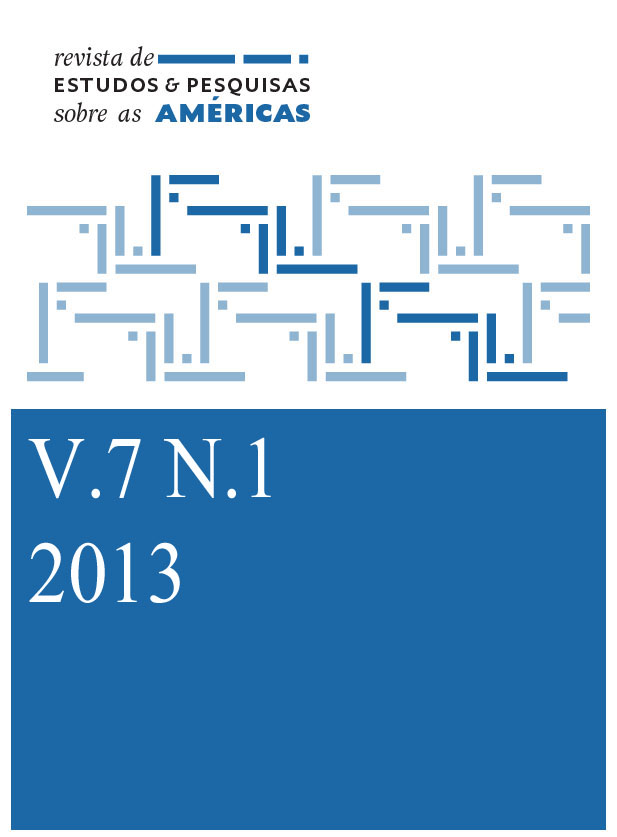THE APPLICATION OF “POPULISM” CONCEPTS IN LATIN AMERICA
the need to classify, and not disqualifying
Keywords:
Populism, Latin America, Paradigmatic cases, ClassificationAbstract
Ever since authors such as Germani (1962), Di Tella (1969) and Ianni (1975) applied the notion of populism in Latin America, much has been written on the subject. The concept stretched out so much that it has served to define the most dissimilar politicians. In the absence of socioeconomic conditions described by classical formulations, the strategy adopted is to restrict the category to the political dimension. Such a procedure, however, is not capable of describing adequate particular attributes that populism would be a specific phenomenon. At the same time, the concept is so deeply embedded in our society that it is not feasible to abandon it. The proposed solution is to evaluate in which characteristics a politician reaches and moves away from the paradigmatic cases of the past. Thus, it can be populist in some respects and not in others. In such a procedure, we arrive at a classification in which a leader shows more or less attributes described by classical definitions, eliminating the need for constant reformulation of the concept to adapt it to new circumstances. Also, there would be less space to which the label of populist would continue to serve to disqualify Latin American politicians. The article discusses recent and classic settings applied to Latin America and assesses the empirical viability of focusing on the political dimension strategy.
Downloads
References
DRAKE, Paul. Populism in South America. Latin American Research Review, v. 17, n. 1, p. 190-199, 1982.
FREIDENBERG, Flavia. La tentación populista. Una vía al poder en América Latina. Madri: Síntesis, 2007.
GERMANI, Gino. Política y sociedad en una época de transición: de la sociedad tradicional a la sociedad de masas. Buenos Aires: Paidós, 1962.
______. Democracia representativa y clases populares en América Latina. In: TOURAINE, Alain, GERMANI, Gino. América del Sur: un proletariado nuevo. Barcelona: Nova Terra, 1965a, p. 39-66.
______. Political Change: from Traditional Society to Total Participation in Latin America. Nova York: Institute of Latin American Studies, 1965b.
HERMET, Guy. El populismo como concepto. Revista de Ciencia Política, v. 23, n. 1, p. 5-18, 2003.
IANNI, Octavio. A formação do Estado populista na América Latina. Rio de Janeiro: Civilização Brasileira, 1975.
LACLAU, Ernesto. La razón populista. México-DF: Fondo de Cultura Económica, 2005.
SARTORI, Giovanni. El método de la comparación y la política comparada. In: SARTORI, Giovanni. La política: lógica y método en las Ciencias Sociales. México- DF: Fondo de Cultura Económica, 2002, p. 261-318.
Downloads
Published
How to Cite
Issue
Section
License
The published material is the property of the Journal, and may be reproduced in whole or in part with indication of the source.
Copyright: Authors will be responsible for obtaining the copyright of the material used. Authors who publish in this journal agree to the following terms:
a)Authors retain the copyright and grant the journal the right of first publication, with the work simultaneously licensed under
the Creative Commons Attribution License which allows the sharing of work with acknowledgment of authorship and initial publication in this journal.
b) Authors are authorized to take additional contracts separately, for non-exclusive distribution of the version of the work published in this journal (eg, publish in institutional repository or as a book chapter), with acknowledgment of authorship and initial publication in this journal.
c) Authors are allowed and encouraged to publish and distribute their work online (eg in institutional repositories or on their personal page) at any point before or during the editorial process, as this can generate productive changes as well as increase the impact and the citation of the published work (See The Effect of Free Access).
















